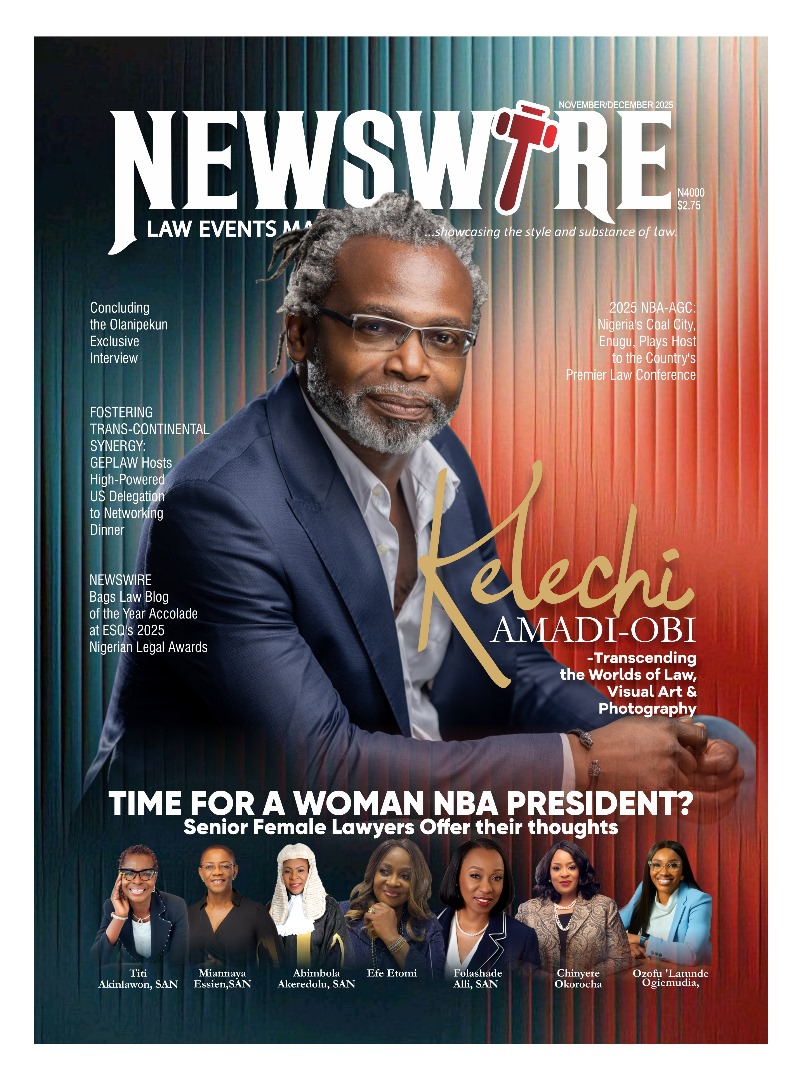Over the years, there has been much talk about the undeniable potential of the female gender to drive positive change and holistic progress in society, thanks to this gender’s innate ability to ‘humanize’ social, political and economic events, issues and trends. In some jurisdictions across the globe, this understanding of the subtle and often-understated power of womanhood in the evolution of society has led to the formulation of deliberate policies and programmes by policymakers, intergovernmental agencies and civil society players to actualize and harness this power for the general good.
And yet, in one instance after another – especially in our clime, Nigeria – we are faced with rude and frequent reminders that the path towards the ideal state of affairs, where women are able to take their proper place in the home, the community and in u self-inflicted – no thanks to the tendency of too many women to sabotage themselves and their fellow women for narrow, short-term interest through a combination of factors such as low self-esteem, impostor syndrome, an ingrained sense of victimhood, a culture of silence, and a sometimes unhealthy competition for male attention, among other psychological responses to the social environment in which they find themselves.
But the larger proportion of obstacles and barriers are placed on the path of women by forces that are inimical to their interests, such as tradition, a culture (and a political and economic structure) that is still largely defined by patriarchy, male chauvinism and even misogyny. This triple threat to women’s advancement, empowerment and even self-esteem has manifested itself in a multiplicity of actions, words and attitudes – such as sexism, discrimination, intimidation, sexual harassment and overt gender-based violence such as rape. When these things occur, victim-blaming, stigmatisation and shaming are some of the factors that prevent women and girls from speaking out in a bid to put a stop to them.
The environment at home, work, play and even in public institutions such as universities and parliaments for women and girls continues to remain mostly hostile and discriminatory. Across generations, geography and gender, women are an endangered species, and those who break ranks from the culture of silence and dare to speak out against these triple threats are often targeted for punishment, reprisals and sanctions.
Back in 2018, a report by Reuters ranked Nigeria as the 8th most dangerous place in the world to be a woman – and for good reason. The Nigerian political arena, it noted in particular, is very hostile to women. Women’s political participation has historically been limited, with various socio-cultural, economic, and institutional factors contributing to their underrepresentation in governance. Despite constituting nearly half of the country’s population, women have struggled to secure significant political positions. Several barriers impede their active involvement in politics including, as I mentioned, deep-seated byppatriarchal beliefs which relegate women to subordinate roles. Political campaigns often require substantial financial resources, which many women lack due to the economic disparities between them and men. The aforementioned prevalence of violence, intimidation, misogyny and sexual harassment which discourage many and the lack of internal party democracy where political parties often sideline female aspirants in favour of their male counterparts for elective positions. In 2019, for example only 3.4% of parliamentarians and 8% of ministers were women, ranking Nigeria at 149th and 124th respectively in the global standings for these two metrics. Currently, at the federal level, there are only four female Senators out of 109 (3.7%) and 16 out of 360 (4.4%) in the House of Representatives.
In recent days, the news cycle – especially on social media – has been dominated by an altercation between Senator Natasha Akpoti-Uduaghan (PDP, Kogi Central) and the President of the Senate, Senator Godswill Akpabio, and the reaction it has generated from the cross section of Nigerians. Sen. Akpoti-Uduaghan has, among other things, accused the senate president of soliciting for sexual favours from her (inspite of both of them being married) in exchange for a less tedious passage of bills sponsored by her.
A lawyer by training, Akpoti-Uduaghan is a social entrepreneur and politician who is widely respected for her commitment to public service – particularly her advocacy for the revitalization of the Ajaokuta Steel Mill, located in her senatorial zone. She was elected to the Senate in 2023 and now serves, as previously mentioned, as one of only four female Senators in this heavily male-dominated parliament.
Following her rejection of Akpabio’s advances, Akpoti-Uduaghan claims, she has endured various forms of victimization within the Senate – including being directed to move to a different seat during plenary sessions (a move she perceived as punitive). Her refusal to comply led to a heated exchange with Akpabio, who eventually ordered her removal from the chamber. She also alleges that Akpabio blocked her motions and attempted to malign her character (and in particular her sexual history) as retaliation for her non-compliance. She has since been suspended for six months.
This encounter has generated much debate in various online and offline platforms about rules of engagement and ethics in public institutions. Interestingly, even as some have called out Akpabio for what they see as his abuse of power and unethical conduct, it has also ignited rage and criticisms from men and women who refuse to believe Sen. Akpoti-Uduaghan, who have urged her to refrain from rocking the proverbial boat, who blame her for deliberately placing herself in a position to allow such advances to happen.
Whatever the merit or otherwise of Sen. Natasha’s allegations, they have grave implications for women’s participation in public life. They also highlight the urgency for establishing measures and clear policies that protect female politicians from harassment, ensuring a conducive environment for their legislative duties. Addressing Sen Natasha’s claims is crucial for not only upholding the Senate’s integrity but for promoting a safe and equitable environment for women in public life in general.
Society as a whole, the media and the legal authorities (including the NBA in its role as the promoter of the rule of law) need to stop infantilizing, shaming and degrading women who speak up against entrenched misogyny.
As the global community commemorates the International Women’s Day today (and the month of March as the International Women’s Month) it is time for society to once again reaffirm what it knows instinctively, that without the robust participation of women in all aspects of family, communal and public life, society will suffer from a slow and steady atrophy. Like a healthy person who breathes with both lungs intact and in good condition, society can only live up to its fullest potential, and perform optimally, when its feminine component is given full expression.
-Advertisement-
Grab our latest Magazine, "Kelechi Amadi-Obi - Transcending the worlds of Law, Visual Art and Photography". Get your order fast and stress free.
For more details about Newswire Law&Events Magazine, kindly reach out to us on 08039218044, 09070309355. Email: newswiremagazine@yahoo.co.uk. You will be glad you did
Download E-MagazineDo you want to be heard, your events covered, your articles published, or need to advertise your products and services on our Blog and Magazine, reach out to us at Newswire Law and Events, you will be glad you did. For more details about our services, please call: 08039218044, 09070309355. Email: newswiremagazine@yahoo.co.uk








